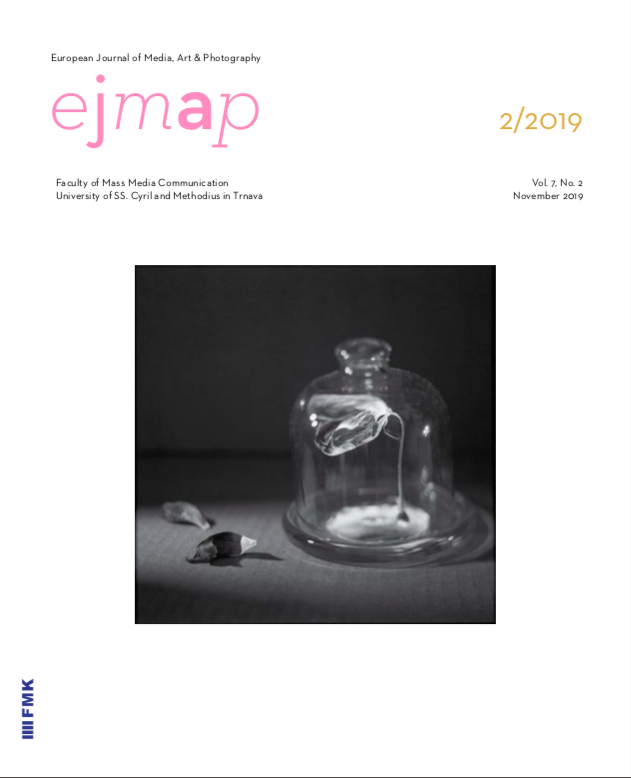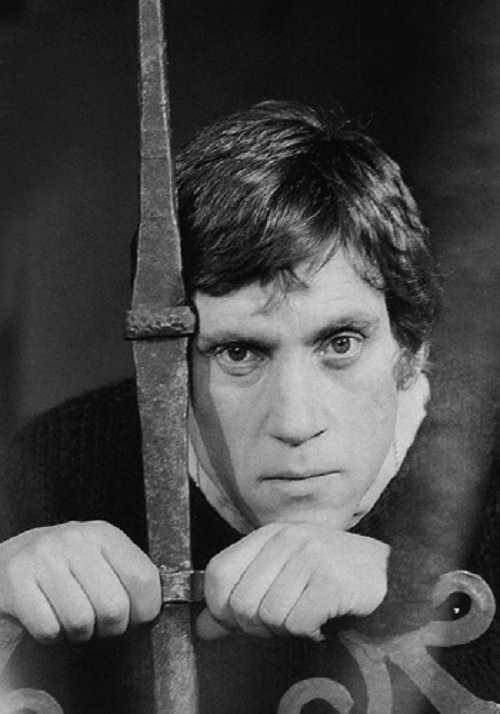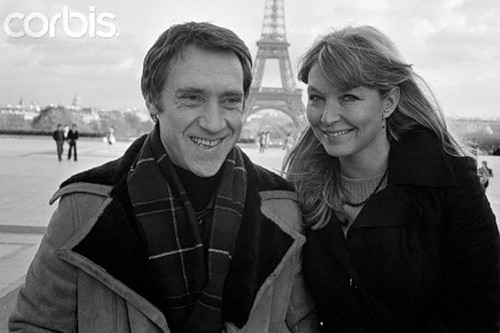Vysotsky Hamlet
 Vysotsky’s Songs at Age 75
Vysotsky’s Songs at Age 75
Vysotsky’s Songs at Age 75
25.01.2013

Nov 29, 2011 In 1971 Vysotsky received the role of Hamlet and played it till his death. Well-liked by the public, he never received any official recognition. His salary of 170 rubles at the theater was not even enough to pay for the rent. Jul 22, 2015 Vysotsky’s iconic status in his homeland derived from his poignant, ironic, and cleverly subversive songs - delivered in a passionate, guttural rasp - that circulated hand-to-hand on underground. Vladimir Vysotskiy, Actor: Plokhoy khoroshiy chelovek. Vladimir Vysotsky was an iconic Russian actor, singer-songwriter and public figure, who wrote over 700 songs and gave over 2000 public and private performances as an anti-establishment singer of the 60s.

In a preface to the first official anthology of Vladimir Vysotsky’s poetry, titled The Nerve and published after his death, Robert Rozhdestvensky mentioned that Vysotsky’s works could be the subject of academic research by literary critics and philologists. Incidentally, the first edition of The Nerve came out in 1981 with the print run of 55,000 copies. Given Vysotsky’s tremendous popularity, especially after his death, this is a negligible quantity as compared to the print-runs of the same Rozhdestvensky in those days.
On January 25 Vysotsky would have turned 75, however preposterous this phrases sounds. For it is absolutely unreal to imagine the favorite of Soviet people living to see noble gray hair (or bald head).
It is believed that any Russian poet rises to greatness only after his or her death. This is exactly what happened to Vysotsky. Because unlicensed copying of his works reached a massive scale in the era of mass production of household cassette tape-recorders and this took place already after the demise of the people’s poet. Alas, hundreds of concerts in closed universities are not the scope achieved after people started copying his songs en masse from Romantika to Elektronika.
There’s no point in raking over the dust and ashes of the past, though.
The problem of studying the legacy of Vysotsky, to my mind, has been artificially taken outside the scope of literature where Vladimir Vysotsky was more successful than in other types of his activity, given that we judge about the poet’s acting talent by Govorukhin’s TV series. It would be strange, for example, to assess Sergey Bezrukov’s talent solely by his role in The Brigade. Incidentally, Bezrukov is rumored to act as today’s birthday boy, or rather he played himself – husky and wearing a rubber mask. The creators of this cinematographic hit praised each other and angrily dismissed any critique, as is the custom… And Vysotsky’s acting in Small Tragedies is far from being a masterpiece as well as the actor’s numerous episodic roles.
It is not possible to make judgments about Vysotsky’s theatrical roles after 30 years have lapsed. One can only blindly believe that Vysotsky’s Hamlet was more ingenious than Yankovsky’s Hamlet – questionable and indefensible.
Meanwhile the incredible talent and energy of his verses is unquestionable. People still love to listen to them, accompanied by a rhythmic guitar clang, but they still do not read his poetry books. It would be somewhat stupid to reread the lyrics of Sergey and Tatiana Nikitin in an attempt to discover some secret meaning in their pseudo-bard lines. But the verses of Vysotsky performed by Vysotsky himself are just striking. Yet nobody has seriously studied this phenomenon of Russian culture. The prolific writer and part-time politician Dmitry Bykov, for example, prefers to study the “proven” works of Pasternak, while neglecting the poet who is in fact his contemporary.
Vysotsky has been turned into a money-making tool. Everybody, starting from his son and ending with sculpting teams, raising the poet’s monuments in all regions of Russia, earn a pretty penny by exploiting his fame. The point is that the inauguration of any monument is a way of squandering the budgetary funds with impunity; hence such a multitude of monuments to mice, watches, boots, goats and Vysotsky, springing up in many cities and towns. Here are just several examples from the recent news reel:
… A monument to Vysotsky will be inaugurated in Rostov already by the end of this month. The first stone has already been laid for its foundation. This is a granite block with a memorial tablet with the actor’s image engraved on top. The sculpture will be erected on Pushkin Street. The inauguration will be timed to the birthday of Vladimir S. Vysotsky. On January 25 he would have turned 75…
… A solemn inauguration of Vladimir Vysotsky’s museum took place on Wednesday at the third floor level of Vysotsky Business Center in Yekaterinburg, reports the press service of the city administration. The exposition covers 250 square meters. Placed on two big showcases are the photographs, clothes and Vysotsky’s personal belongings that illustrate different stages of his life. The poet’s legendary restored Mercedes car and wax figure will also be among the exhibits. “Vladimir Vysotsky visited Yekaterinburg twice in 1962 and 1964, staying at Bolshoi Ural Hotel. This is why the project authors fully restored the hotel room where he resided: the doors of his room, furnishings and interior items of those days. The bureau where the poet wrote letters to his wife has also been preserved,” says the report.
… Mayor of Vladivostok Igor Pushkarev met with the city sculptors and artists to discuss what monuments will embellish the city in the foreseeable future, reports the city administration’s briefing service. The mayor admitted that he had long been dreaming of setting up a monument to Vysotsky in Vladivostok. The monument must be unique, underlined Pushkarev, different from those in other cities.
One of his variants is Vysotsky singing.
“Vladimir Semyonovich sits with his guitar on the bench in a small public garden where the muffled sound of his songs can be heard 24 hours a day. Any visitor will be able to sit beside, listen to his wise texts, feel his pain, sometimes an agony, and think about the meaning of life… This kind of a ‘close’ sculpture will let each of us find our own Vysotsky,” says Vladivostok’s mayor.
And wherever the monuments have already been inaugurated, they find other ways of celebrating the poet’s jubilee. “In Kaliningrad they have released a series of envelopes devoted to Vladimir Vysotsky and timed to the 75th birthday of the outstanding actor, poet and bard. The series is also dedicated to the poet’s sojourn in the capital of the Amber Land…”
Meanwhile the poems of Vysotsky were not included in the list of 100 books recommended to Russia’s schoolchildren for compulsory extra-curriculum reading.
Andrei Morozov
Subject essay: James von Geldern
Vysotsky Hamlet
On July 24, 1980 Vladimir Vysotskii, the most popular actor of his time, troubadour of a declining Soviet society, fast liver, hard drinker and inveterate smoker, died of a heart attack. Voice of dissent but not a dissident, a movie star whose poetry and songs were never acceptable to the Party, Vysotskii voiced the desperate passions of a disillusioned generation. Born in 1938, he graduated from the Moscow Art Theater school of acting in 1960, and immediately plunged into writing the songs that would become underground favorites circulated from tape recorder to tape recorder throughout the Soviet Union. In 1964 he began working at the Moscow Theater of Drama and Comedy, popularly known as Taganka for the district of Moscow it graced, and scored a string of starring roles that included Hamlet and the Russian poet Sergei Esenin … His chiseled features, gravelly voice, and acting skills brought him to the attention of film directors and television producers, such as the detective series The Meeting Place Cannot be Changed.
Vladimir Vysotsky Hamlet

Vysotskii the legend is as important as Vysotskii the actor and singer. Many of his songs were sung in the voice of a former prison camp inmate, which led many fans to assume that this had been his fate as well. Although Vysotskii was the darling of Soviet cultural institutions and moved comfortably among the Moscow elite, he embodied for his compatriots a defiance of social convenient that many mistook for dissidence. Although he bemoaned the spiritual vacuum of Soviet life, and flagrantly tested the boundaries of cultural expression, he never questioned or even addressed the foundations of the Soviet order.
Vysotsky Hamlet
From the moment of his death, Vysotskii assumed the dimensions of a cult object, perhaps even a martyr to the Soviet way of life. His gravesite became a site of pilgrimage, the record maker Melodiia which had spurned him during his life made a fortune on his recordings after death. Celebrated in memory, movie and song, he was celebrated by a second generation in website as well. All along the main guardian of his legacy has been Marina Vladi, his French-born wife whose Russian roots, French acting career and good looks endeared her to the Russian audience.